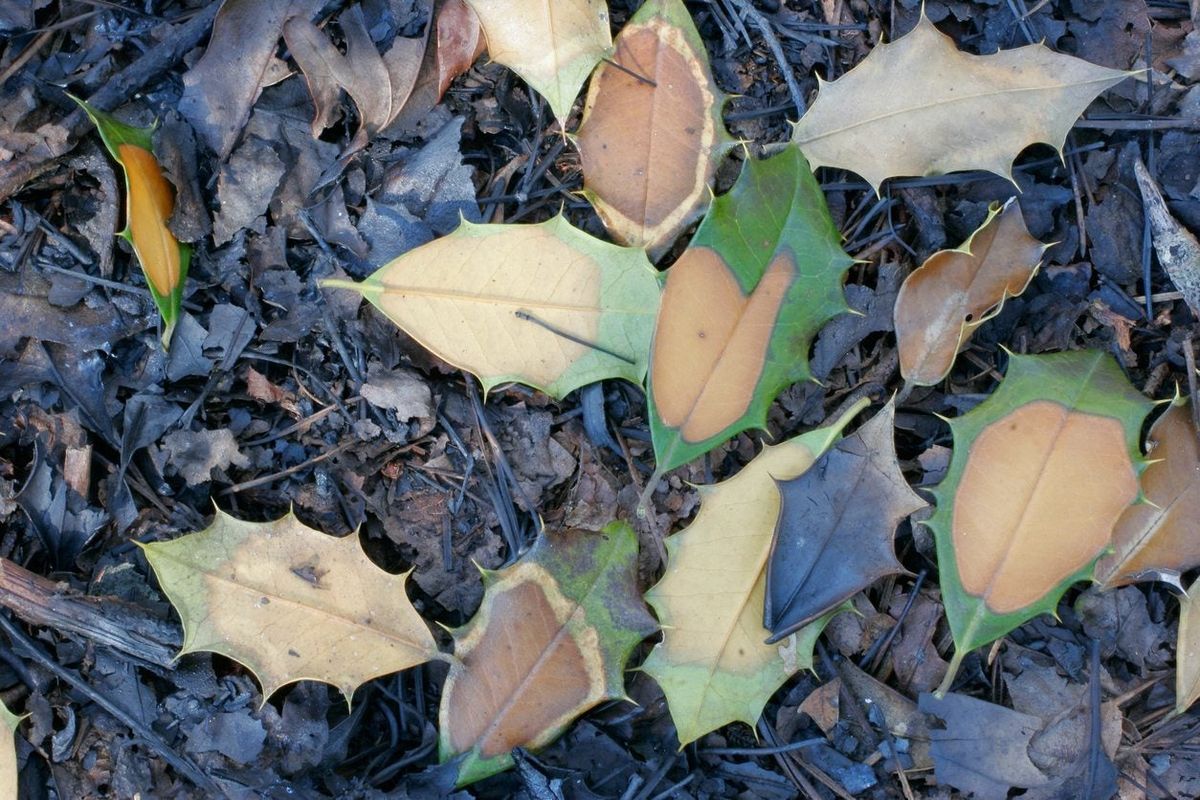With their glossy evergreen foliage and cheery red berries, holly bushes are cherished additions to many gardens and landscapes. But sometimes those seemingly endless leaves start dropping, leaving behind bare branches. This can be alarming for any holly lover. But don’t panic – leaf loss is perfectly normal for hollies. Understanding their natural growth cycle helps explain this behavior. Let’s explore the intriguing question – do holly bushes lose their leaves?
Holly Leaves: Evergreen, But Not Permanent
Hollies are classified botanically as broadleaf evergreens This means they retain their foliage year-round rather than shedding all their leaves in autumn like deciduous trees But evergreen doesn’t mean the leaves are permanent. Hollies do naturally drop some of their older leaves at certain times as new growth appears.
In spring, hollies undergo an annual leaf exchange. The oldest inner leaves turn yellow and drop away, making room for fresh new leaves to emerge. As long as the leaf loss is contained to the interior and the outermost leaves remain green, this seasonal shedding is perfectly healthy.
Typical Leaf Loss Pattern
During the normal spring leaf drop
- Older leaves on inner branches turn yellow first.
- Yellowing spreads gradually deeper into the canopy.
- Affected leaves drop cleanly from the branches.
- Outermost branch tips retain green leaves.
- Leaf loss occurs relatively rapidly over 1-2 weeks.
- No more than 30% of leaves are shed.
- Holly resumes normal appearance as new leaves grow.
As long as this general pattern occurs, usually in spring, the leaf drop is nothing to worry about. Think of it as the holly rotating its wardrobe for the new season!
Factors Prompting Leaf Loss
Hollies drop more leaves than usual when under stress, including:
-
Insufficient water – Drought causes leaves to dry out and drop.
-
Poor drainage – Excess moisture damages roots, preventing leaf growth.
-
Extreme cold – Freezing temperatures injure leaves, which later turn brown.
-
Pest/disease damage – Leaf spots, mites, and blights cause leaf loss.
-
Root disturbance – Damage to roots from construction, tilling, etc. reduces leaf growth.
-
Over-pruning – Cutting too much of the canopy prompts heavy leaf drop.
-
Transplant shock – Newly planted hollies may shed more leaves as they establish.
Problems with Excessive Leaf Loss
While some leaf drop is expected, losing most or all leaves is problematic. Issues include:
-
Bare branches are unsightly and lack privacy.
-
Loss of foliage damages the plant’s health over time.
-
Lack of leaves means no nutrients from photosynthesis.
-
More pruning is required to restore shape.
-
Berries lack foliage support and may not form properly.
Caring for Hollies and Their Leaves
To prevent excessive leaf loss:
-
Water hollies during drought, keeping soil moderately moist.
-
Improve drainage in overly wet soil.
-
Protect from harsh winter wind and cold.
-
Control diseases and pests promptly.
-
Avoid root damage from construction activities.
-
Prune judiciously, only as needed.
-
Allow 1-2 years for transplants to establish before pruning.
Enjoy Hollies Despite Leaf Loss
Don’t despair when holly leaves blanket the ground in spring – it’s all part of the plant’s natural cycle. With proper care minimizing stress, the leaf loss will be temporary. Soon your holly’s beautiful branches will be cloaked in glossy new foliage just in time to provide a perfect backdrop for the beloved red winter berries.
All About Holly Bushes | Ask This Old House
FAQ
Why are my holly bushes dropping leaves?
Will holly leaves grow back?
Do holly bushes stay green all year?
What are the downsides of holly bushes?
- The Ultimate Guide to Growing Strawberries in Raised Beds - August 8, 2025
- No-Dig Garden Beds: The Easiest Way to Grow a Beautiful Garden - August 6, 2025
- How to Protect and Preserve Wood for Raised Garden Beds - August 6, 2025

